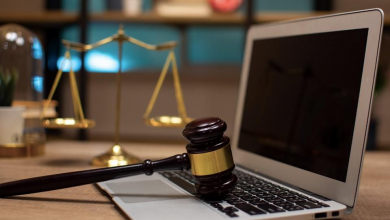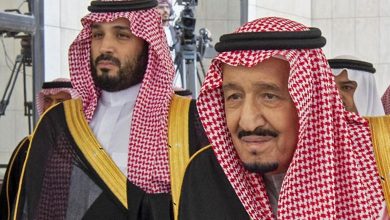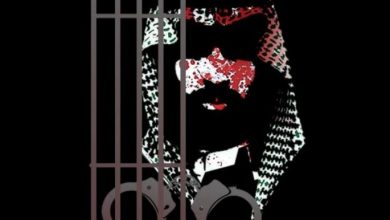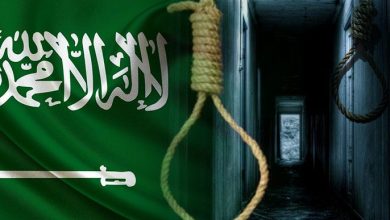At the Jeddah Summit: Saudi Arabia Solidifies the Absence of Peoples’ Will and Rewards Tyrants
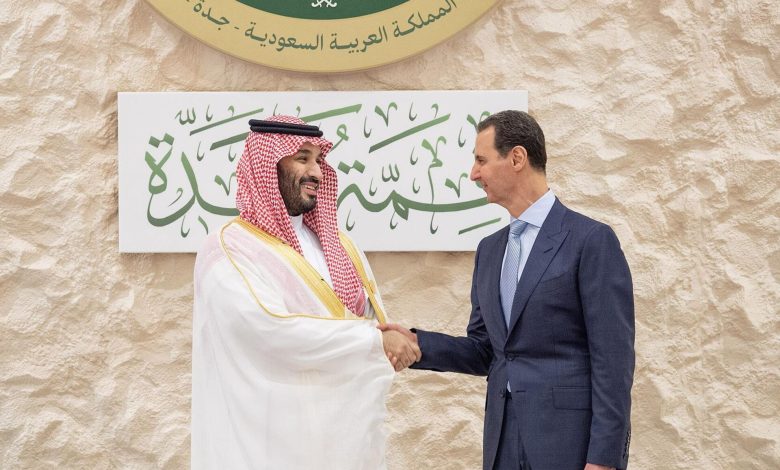
By hosting the Arab Summit in Jeddah two days ago, the Saudi authorities solidified the policy of ignoring the people’s will and rewarding tyrants by embracing Syrian President Bashar al-Assad.
The Arab Summit, in its 32nd session, provoked all Arab peoples opposing dictatorship and tyranny, especially the Syrian people, by rolling out the red carpet for Syrian President Bashar al-Assad and allowing him to speak from its podium after suspending his membership for over a decade.
According to the opposition newspaper “Sawt Al-Nas,” the entire Jeddah Summit, from its beginning to its end, and the warm reception of Assad by the hosting state and all the attendees, as well as his speech that showed no sign of retracting his policies or apologizing for his crimes against his own people since 2011, which led to the suspension of his membership in the Arab League for 12 years, has sparked widespread anger and dissatisfaction on all levels.
The Saudi National Assembly Party condemned Assad’s participation in the Arab Summit, considering it a new setback at the local and regional levels. They recalled the Saudi government’s position during the past decade and since the beginning of the Arab revolutions, which opposed the Assad regime, responsible for the bloodshed and the displacement of a third of the Syrian people.
The party affirmed that normalizing relations with Assad is a way of reviving him after his isolation due to the brutality of his crimes against the Syrian people. They criticized the negative contribution of the Saudi regime in supporting the Assad regime and suppressing the Syrian people’s aspirations for freedom and a decent life, especially since an agreement was reached in the Arab League 12 years ago to freeze his membership.
In response to the outcomes of the Jeddah Summit, the former Secretary-General of the National Assembly Party, Yahya Asiri, said, “Let us avoid conflicts and prevent the region from becoming a battleground for tyrants above the heads of the people. Let us unite efforts against the common enemy (freedom) and direct the conflict with one hand against our people and our region.” He added, “The killers at the Arab Summit are united in serving Zionism and murder.”
The Secretary-General of the party, Abdullah Al-Awda, referred to the summit by mentioning the “chainsaw” and the “chemical weapons/barrels.” The term “chainsaw” was used to describe Salman bin Salman following his involvement in the assassination of the Saudi journalist Jamal Khashoggi inside the Saudi consulate in Turkey in October 2018. The “chemical weapons/barrels” are terms used to describe Assad after he used them against his own people.
Abdullah Al-Jarwi, a party member, mentioned the Saudi ambassador’s speech to the United Nations, Abdullah Al-Ma’limi, in December 2021, titled “Don’t Believe Them.” In his remarks, Al-Ma’limi rejected the idea of following in the footsteps of Arab countries that took steps to normalize their relations with Damascus and called on the world not to believe that the war in Syria had ended.
He shared two video clips, one of Al-Ma’limi’s speech and the other showing representatives of the Saudi regime welcoming Assad at King Abdulaziz International Airport. Then, he sarcastically questioned whether they should believe them, mocking Saudi diplomacy’s childishness and inconsistency in making decisions regarding several issues, including relations with Turkey, Qatar, and the Houthis.
Dr. Abu Al-Jawaz Al-Matamiri, a party member, stated that Mohammed bin Salman resembles Bashar in seizing the country’s wealth and crushing the citizens through repressive measures and changing their identity.
The Political Affairs Administration of the Syrian Interim Government announced its rejection of Assad’s return to the Arab League and his participation, along with his accompanying delegation, in the Jeddah Summit. They condemned all attempts to float the political regime, whitewash its crimes, or compromise the blood of martyrs, the issue of prisoners, the missing, and the rights of the displaced and refugees.
In a statement issued after the summit, the administration highlighted that the Syrian revolution faces a serious challenge represented by relentless regional attempts, under Iranian sponsorship, to whitewash the documented record of crimes committed by the Syrian regime, which is evident in the records of human rights and humanitarian institutions, and to reintroduce it into the political arena.
The Political Affairs Administration of the Syrian Interim Government affirmed that Assad and his regime do not represent Syria as a people or a state and that all attempts to market the regime and reintroduce it into the Arab political scene will not change the reality of its brutality in the eyes of the Syrian people. They stated, “We will not abandon the option of resisting him until he and all members of his criminal system are held accountable.”
Writers, journalists, media professionals, activists, sheikhs, and political analysts criticized the events and decisions of the Arab Summit. They expressed widespread disapproval of the warm reception given to Assad by Mohammed bin Salman and the normalization of Assad, imposed regionally and internationally.
They criticized the inclusion of Bashar al-Assad in a team alongside critics of Turkey and the Muslim Brotherhood under the pretext of warning about the dangers surrounding the Arab world. They emphasized that the risks do not begin with the crimes of the Zionist occupation against the Palestinian people, nor do they end with the threat of expansionist Ottoman ideology influenced by a deviant Brotherhood flavour. They considered his attack as an attempt to exonerate themselves.
Ahmed Al-Hasani Al-Shinqiti, the Assistant Secretary-General of the Arab Scholars League, sent a message to the Jeddah Summit, affirming that hosting the butcher Bashar al-Assad is undoubtedly a known prohibition in religion, and there is no excuse for any ruler or scholar to accept such a decision.
Sufyan Abu Zaid, a member of the International Union of Muslim Scholars, shared a picture showing Assad shaking hands with Egyptian President Abdel Fattah el-Sisi, with Tunisian President Kais Saied standing beside them, stating: “In the picture, we see three murderers and tyrants in what is called the 32nd Arab Summit.”
He clarified that two of those appearing in the picture earned the title of “butcher” (referring to Sisi and Assad) and that Saied looks at them with a look of misery, hoping that he regrets his path if he is not like them in killing and shedding blood. However, he compensates for that by arresting and suppressing freedom in green Tunisia.
Jamal Sultan, the editor-in-chief of Al-Masriyoun newspaper, expressed his dismay at Assad’s statement during the summit that the most important thing is to leave internal matters in countries to their people. He said, “This criminal did not leave any sectarian militia in the world without seeking their assistance in killing his people, displacing them, and protecting his throne, from Lebanon, Iraq, Afghanistan, and Pakistan, in addition to the Russian army and the Iranian Guard. He must be under the influence of some hallucinogenic drug.”
Radaef Mustafa, a Syrian lawyer and politician, addressed the kings, presidents, and princes of the Arab world, excluding Assad, whom he described as a criminal, saying, “We know that Iran occupies four Arab capitals. Can you tell us one Arab capital occupied by Turkey so that you allow a person boasting of his loyalty to Iran and Russia?

